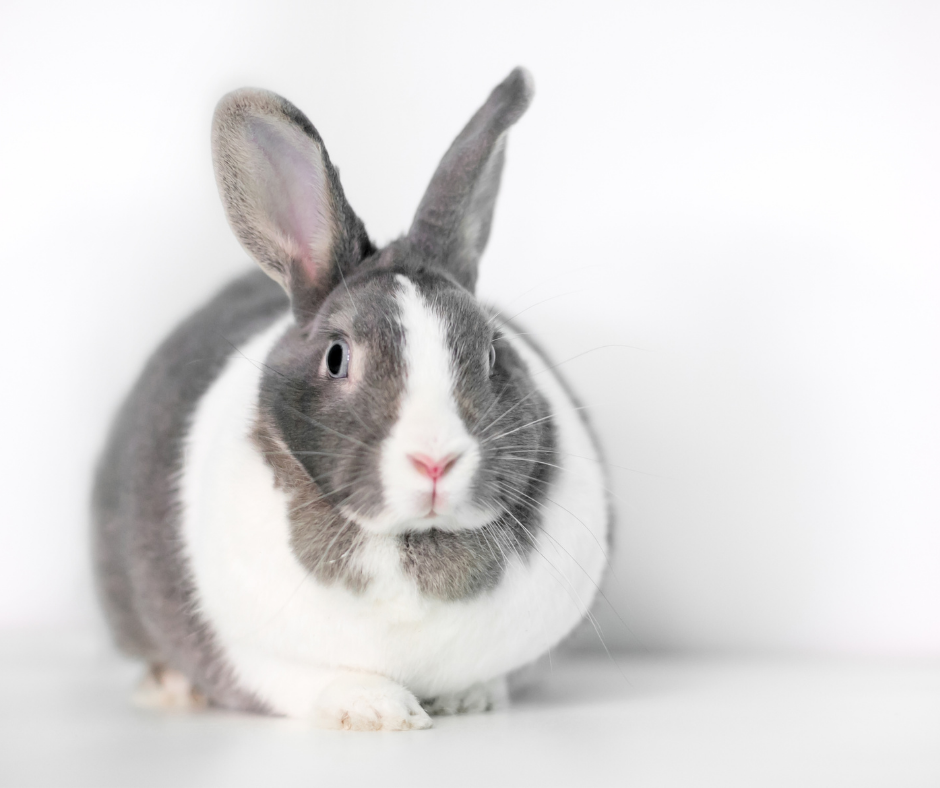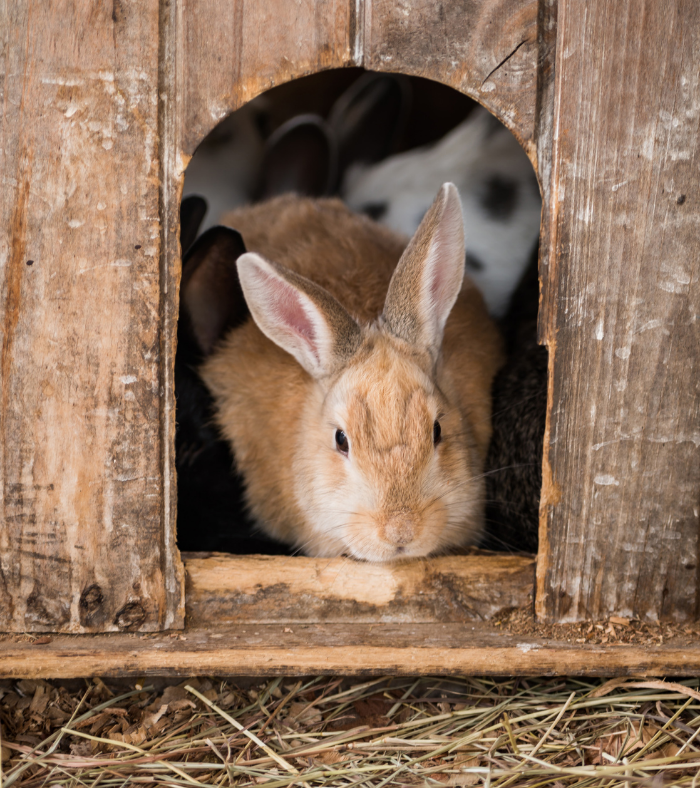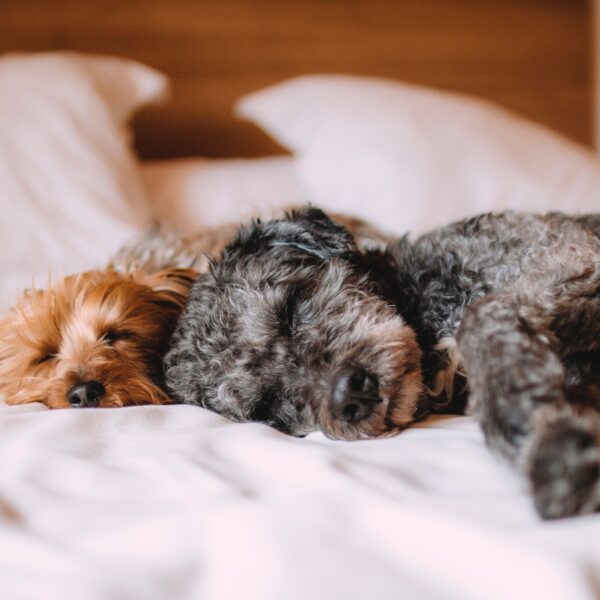Rabbit obesity and how to tackle it.
If there’s one thing bunnies love, it’s food! Most rabbits will constantly be nibbling throughout the day and will often favour sugary treats, which means that it’s pretty easy for them to start packing on the pounds… But how can you tell if your rabbit is overweight, and what’s the problem with weight gain in rabbits?
Unfortunately, overweight bunnies are much more likely to develop health problems, which is why it’s super important to make sure your rabbit stays at a good weight to help them lead a long and healthy life!
Obesity in bunnies.
Bunnies that are overweight are far more likely to develop health problems, especially as they get older. These complications can include:
- Heart disease as, in overweight bunnies, the heart has to work much harder and so problems may develop.
- Liver problems as fat deposits may start to build up and prevent the liver from working properly.
- Arthritis as extra weight means more pressure on the joints, which can cause the joints to deteriorate and become sore more quickly.
- Skin problems which can involve urinary scald and difficulty grooming properly.
- Fly strike as overweight bunnies will struggle to keep their bottoms clean, and the faeces and urine that build up will attract flies who will lay their eggs in your bunny’s skin folds. The maggots that hatch from these eggs will eat away at the tissue around you rabbit’s bottom which is not only very painful (especially if the tissue becomes infected) but can also be fatal for your bunny.
These problems can all be extremely serious, and some of them can even be fatal. And by keeping your bunny slim and trim, you will really reduce the chance of them becoming poorly with one of these horrible illnesses.
How do I know if my rabbit is overweight?
There are several different things that you can do to help you work out if your bunny is overweight, underweight or just right:
- When you look at your rabbit from above, they should be a general pear shape, curving inwards from the hips to the shoulders.
- You should be able to feel their spine and hip bones.
- Your bunny’s ribs should be easy to feel when you run your hands along the side of their chest but, again, the individual ribs shouldn’t stick out too much.
- Your rabbit’s tummy should tuck under and shouldn’t bulge out.
- If you notice a pouch of fatty tissue under you rabbit’s chin around their neck, it doesn’t always mean your bunny is overweight. This flap of tissue is called a dewlap and, whilst dewlaps do get larger with obesity, they can appear in rabbits that are completely healthy (especially unneutered females). Therefore, if your bunny is an otherwise normal weight, a dewlap is normally nothing to worry about.

Rabbit weight chart.
It’s a great idea to try and keep track of your bunny’s weight at home, by buying a pair of small scales. By regularly weighing your rabbit, and keeping a record, you will be able to easily see if your bunny has gained or lost weight.
What can you do if your rabbit is overweight?
Often the best way to get your rabbit’s weight down is through diet, exercise and careful weight monitoring. But if you think your bunny is overweight, it’s always a good idea to speak to a veterinary professional for advice.
A healthy rabbit diet.
Rabbit’s diets are extremely important, especially in overweight bunnies! It’s important to monitor what your bunny eats and adjust their food accordingly depending on whether they are under or overweight.
Bunnies should always be given constant access to grass or hay, as this is very fibrous, meaning it’s good for their gut, teeth and overall health. The rest of your rabbit’s diet should consist of a small amount of veg and around a tablespoon of good quality pellets- with the veggies and pellets together making up less than 15-20% if your rabbit’s diet overall.
It’s also important to try and only give small quantities of treats, especially if your bunny is overweight, and try to select products that have no added sugar.
You can find out more about exactly what to feed your bunny in our article- Do rabbits need hay?
How much exercise should a rabbit get?
Unfortunately, lots of rabbits are kept in hutches that are just too small! This means that they aren’t able to skip, jump, hop and leap like they would in the wild.
Being able to perform these natural behaviours not only helps bunnies to feel happier, but also allows them to stay fit and lean. It’s therefore vital to allow your rabbit to have a bigger space to run around in, such as a secure rabbit run- or you could even rabbit-proof your garden so your bunny can have a safe lollop around!
How big should my rabbit’s run be?
Rabbits are very social animals and like to live in pairs or groups. A run for two bunnies should be at least 3x2x1m (10x6x3ft) and should allow them plenty of room to lie down, stretch out, jump and run. And, whilst these measurements are minimum guidelines, the bigger the run the better!
It’s also important to give your bunny lots of toys to play with to help to get them moving! Cardboard boxes and tubes as well as hiding tunnels and igloos can all encourage your rabbit to have fun playing and running around.

Small pets and obesity.
It’s not just bunnies that can become overweight! Any small pet can become obese if given an inappropriate diet and or an unsuitable environment to exercise in. Therefore, whether you have a guinea pig, gerbil, hamster, degu, rat, mouse or even a pygmy hedgehog- it’s always important to monitor your pet’s weight and contact your vet if you have any concerns.
What if your rabbit loses weight or stops eating?
If you notice your bunny has lost weight, isn’t as interested in food anymore, or has stopped eating all together it’s really important to contact your vets straight away. Weight loss and inappetence can both be signs of an underlying health conditions and bunnies can get poorly very quickly so it’s always best to speak to your vet for advice if you have any concerns.


